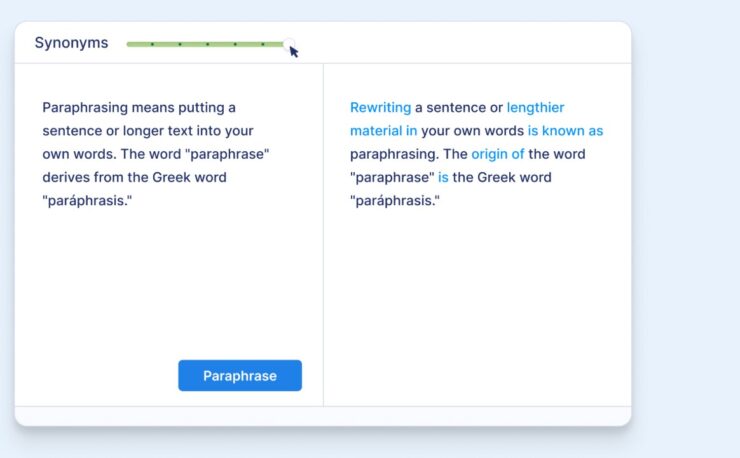Table of Contents
Students often juggle assignments, part-time work, and personal commitments. Free study tools serve as quiet assistants, taking over routine jobs so mental energy is saved for actual learning. They range from writing helpers to time trackers, and when used wisely, they can shorten study sessions while deepening understanding.
A good tool doesn’t just “do the work.” It shows you how to think more clearly, remember longer, and apply knowledge with less stress. That’s why the following sections explore tools with proven value, not gimmicks.
Tools That Strengthen Writing and Understanding
Writing is where many students struggle, whether it’s drafting essays, summaries, or reports. Free tools designed for writing assistance can be a lifesaver when deadlines approach.
For instance, paraphrasing software helps students reframe ideas without losing meaning. A reliable paraphraser allows users to process dense academic language into something clearer, making it easier to study from complex texts. Used responsibly, these tools support comprehension while also reducing the risk of accidental plagiarism.
Other writing-focused free tools include:
- Grammarly Basic – checks grammar, spelling, and clarity.
- Hemingway Editor – makes essays more readable.
- Google Docs – free cloud-based writing space with collaboration features.
Together, they give students both polish and confidence in their written work.

Organizers and Task Managers for Students
Managing coursework is just as important as writing. Without structure, even the most motivated student can get lost. Free digital organizers bring order to study chaos.
- Notion (Free plan): Combines notes, tasks, and databases in one dashboard.
- Trello: Uses boards and cards to track tasks visually.
- Todoist (Free): Simple to-do lists with deadlines and recurring reminders.
These tools not only track assignments but also teach the habit of breaking big tasks into smaller, doable steps. That shift in mindset often reduces procrastination and makes studying feel less overwhelming.
Note-Taking Tools You Can Rely On
Taking notes is about more than scribbling sentences. Digital note-taking tools help students capture information in a way that’s searchable and easy to revisit.
| Tool | Best For | Unique Benefit |
| Evernote (Free tier) | Organized notes | Syncs across devices |
| Microsoft OneNote | Class notes | Freeform drawing & audio |
| Google Keep | Quick reminders | Simple, color-coded notes |
Instead of flipping through messy notebooks, these apps give you searchable records that are always accessible. They also encourage smarter reviewing habits: tagging notes, linking ideas, and embedding images for visual learners.
Research and Reference Helpers
Finding reliable information is one of the toughest parts of studying. Free research tools ease that burden by filtering credible sources and simplifying citations.
Some useful choices include:
- Google Scholar: Academic articles, theses, and books.
- Zotero: Free reference manager for saving and citing sources.
- ResearchGate: Access to publications and networking with academics.
These tools keep research grounded in credible sources, which is critical in academic work. They also speed up the dreaded “citation formatting” process that can consume hours.

Time Management and Focus Apps
Even with the best notes and research, studying falls apart without time discipline. Free focus tools are designed to support attention in a digital world filled with distractions.
- Pomofocus: A free online timer that applies the Pomodoro method.
- Forest (Free version): Encourages focus by “growing trees” while you study.
- RescueTime Lite: Tracks where your time goes online.
These apps add gentle structure to study sessions. Students report better retention when they study in short, focused intervals rather than long, distracted marathons.
Mind Mapping and Visualization Tools
Sometimes words alone don’t help you grasp a concept. Visualization tools turn abstract ideas into clear, memorable maps.
- Coggle (Free): Simple, colorful mind maps online.
- MindMup: Free mapping with easy export options.
- Canva (Free templates): Great for diagrams and visual summaries.
Mind mapping is especially useful for subjects that require connecting multiple ideas, like history, biology, or literature. Instead of memorizing isolated facts, students can see how ideas flow together.
Language and Learning Support
For students studying in a second language, or learning a new one, free tools can make the difference between frustration and progress.
- Duolingo (Free): Engaging language learning with gamified lessons.
- Linguee: Contextual dictionary for accurate translations.
- Reverso: Example-based translations to avoid awkward phrasing.
These aren’t shortcuts. They guide learners toward correct usage and practical application, which helps build real language confidence over time.

Collaboration and Sharing Platforms
Studying is rarely a solo journey. Free collaboration tools allow students to share notes, quiz each other, and prepare as a team.
- Slack (Free tier): Useful for group projects and communication.
- Google Workspace (Free for individuals): Shared documents, sheets, and slides.
- Quizlet (Free): Create and share flashcards for collective study.
Working together often uncovers insights one might miss when studying alone. It also keeps motivation high because accountability is built into the process.
A word of caution: free tools can become distractions if used without boundaries. Switching between multiple apps, chasing the “perfect” setup, or over-customizing dashboards can waste more time than they save. The goal isn’t to use every tool, but to find two or three that blend smoothly into your daily study routine.
How to Choose the Right Tool for You
With so many free options, choice itself can feel overwhelming. The best way forward is to filter tools based on your learning style.
- If you’re a visual learner, prioritize note-taking apps with drawing or mapping features.
- If you need accountability, focus apps with timers or trackers will be most useful.
- If you write often, writing aids and citation tools will carry the heaviest weight.
Personal fit is what makes a tool effective. A perfect app for one student may sit unused on another’s device.
Final Thoughts
Free study tools are more than conveniences. They’re companions in the learning process, helping students stay organized, confident, and focused. Whether it’s a note app, a paraphraser, or a time manager, the best choice is the one that reduces stress and supports your personal study rhythm.
With just a few well-chosen tools, studying becomes less about survival and more about progress. And progress, step by step, is what makes the difference in every student’s academic journey.

